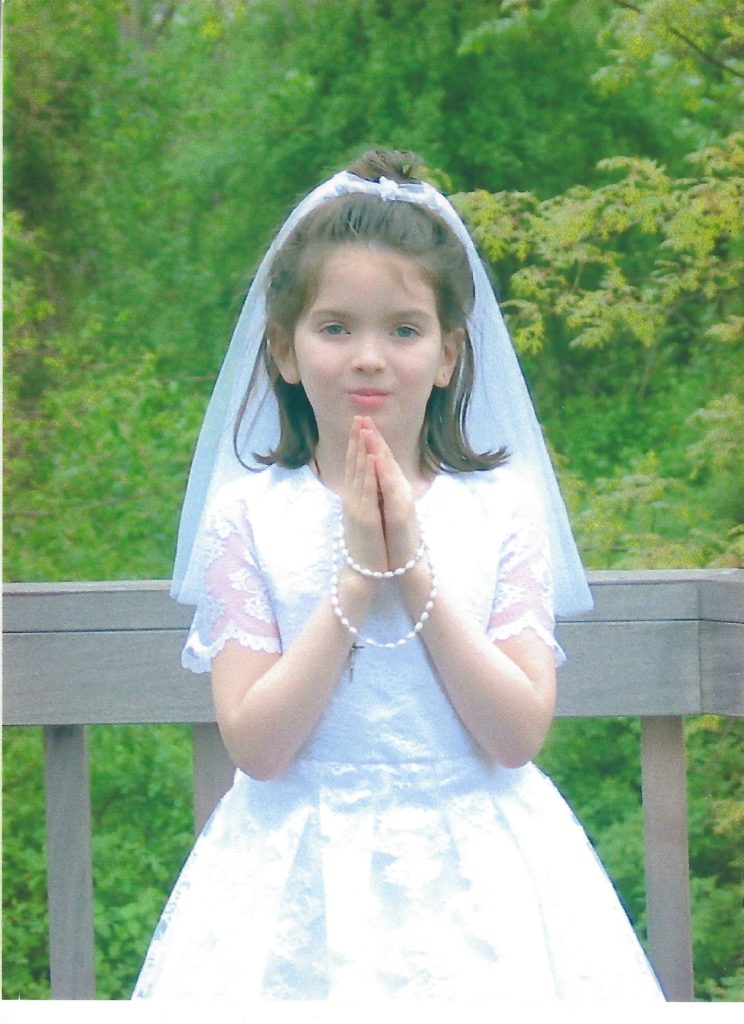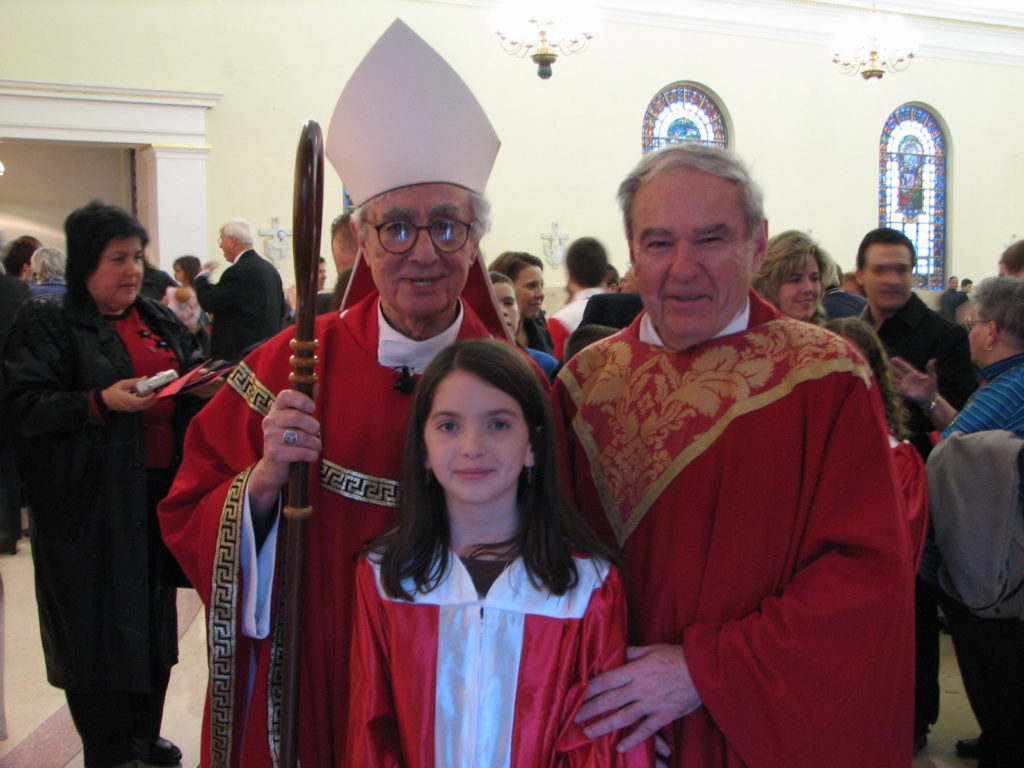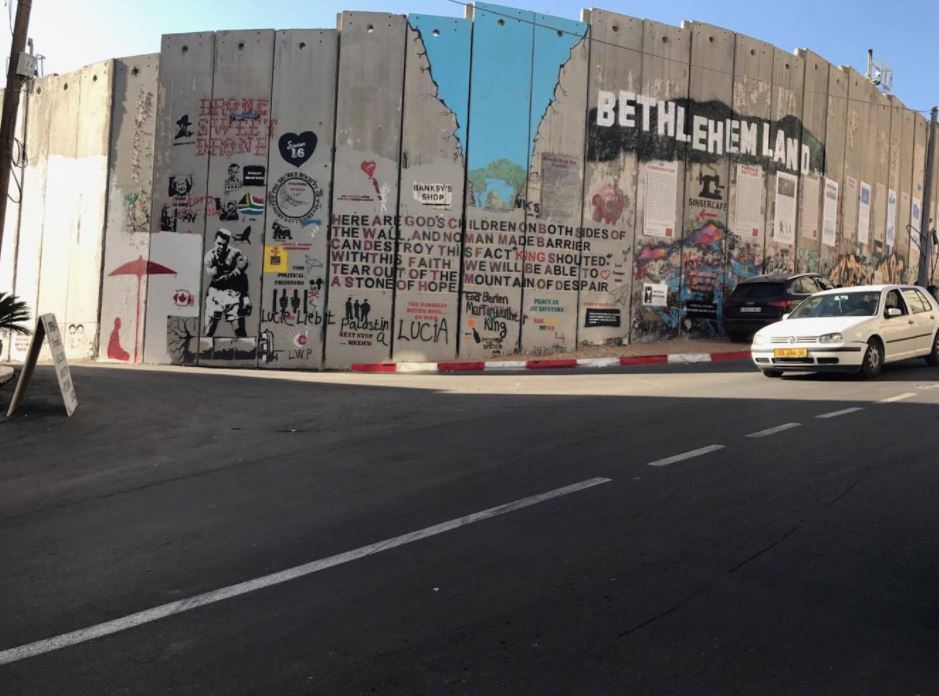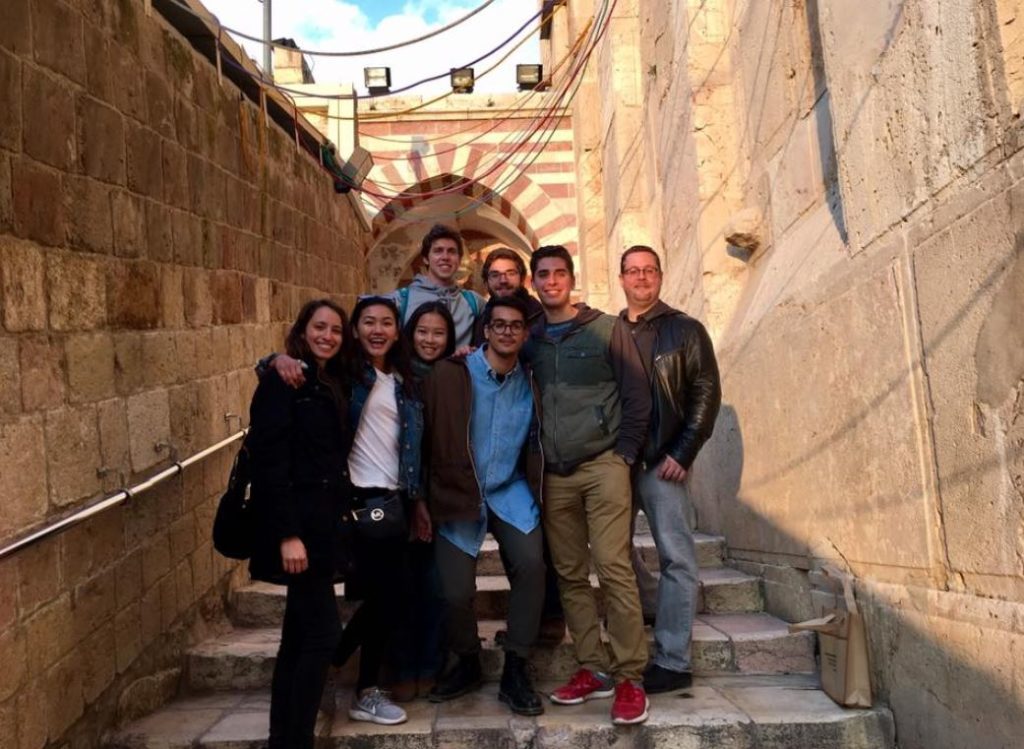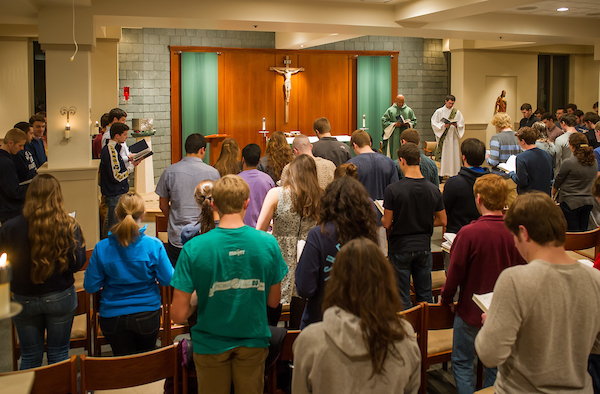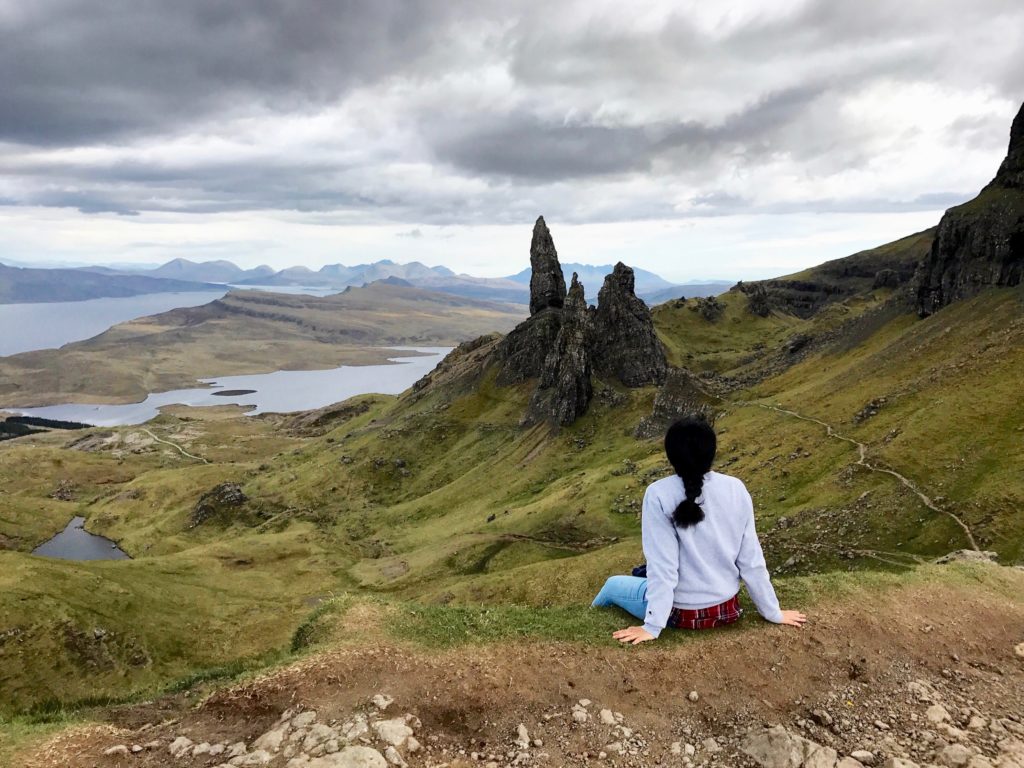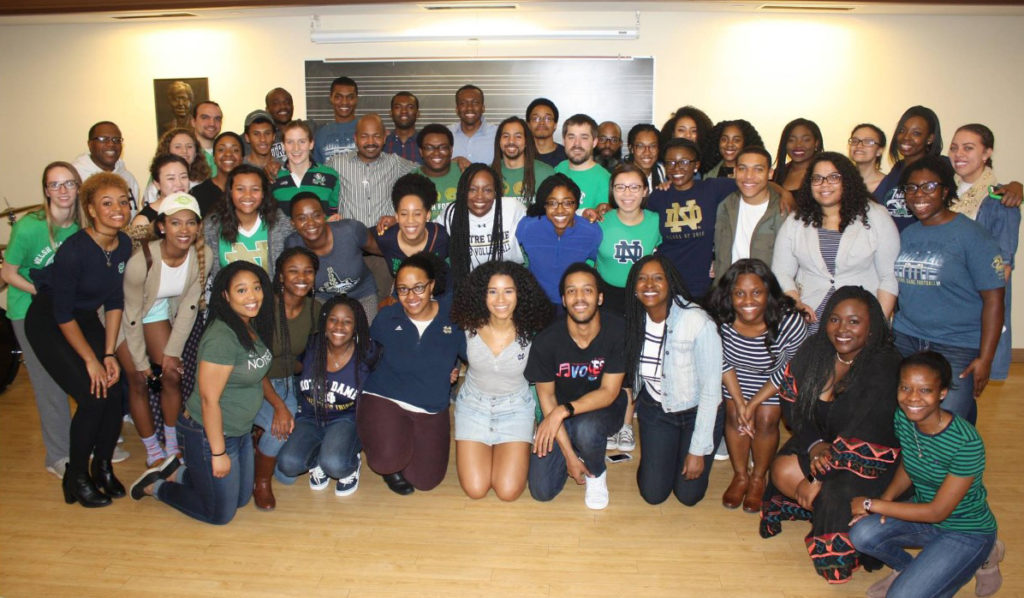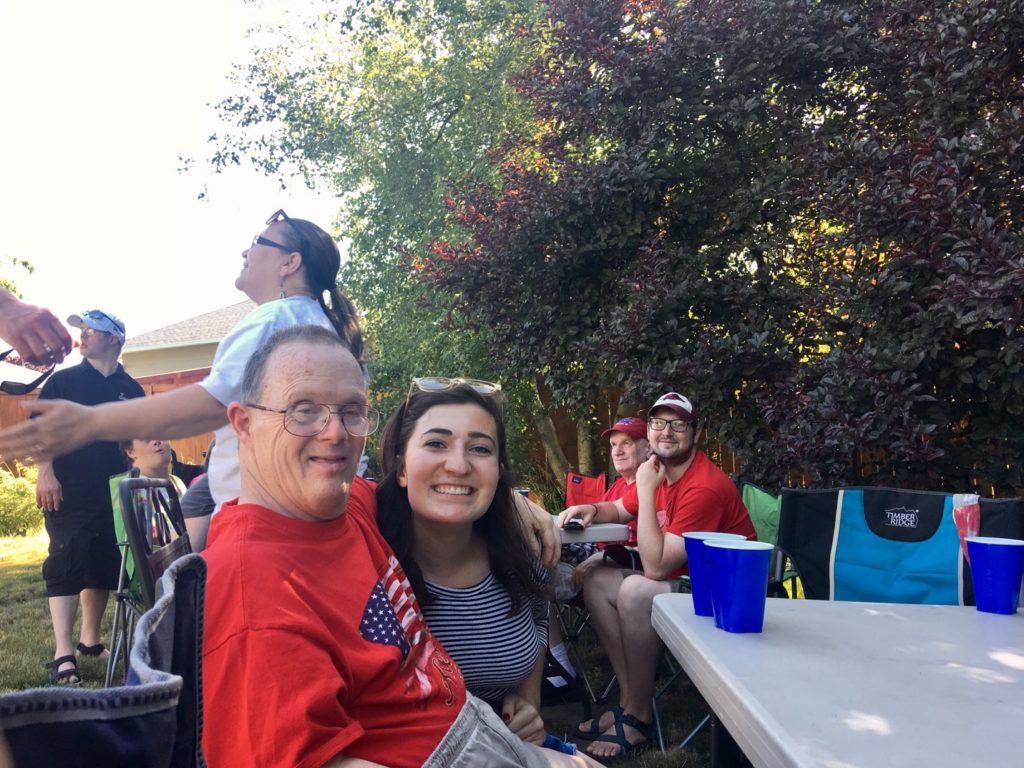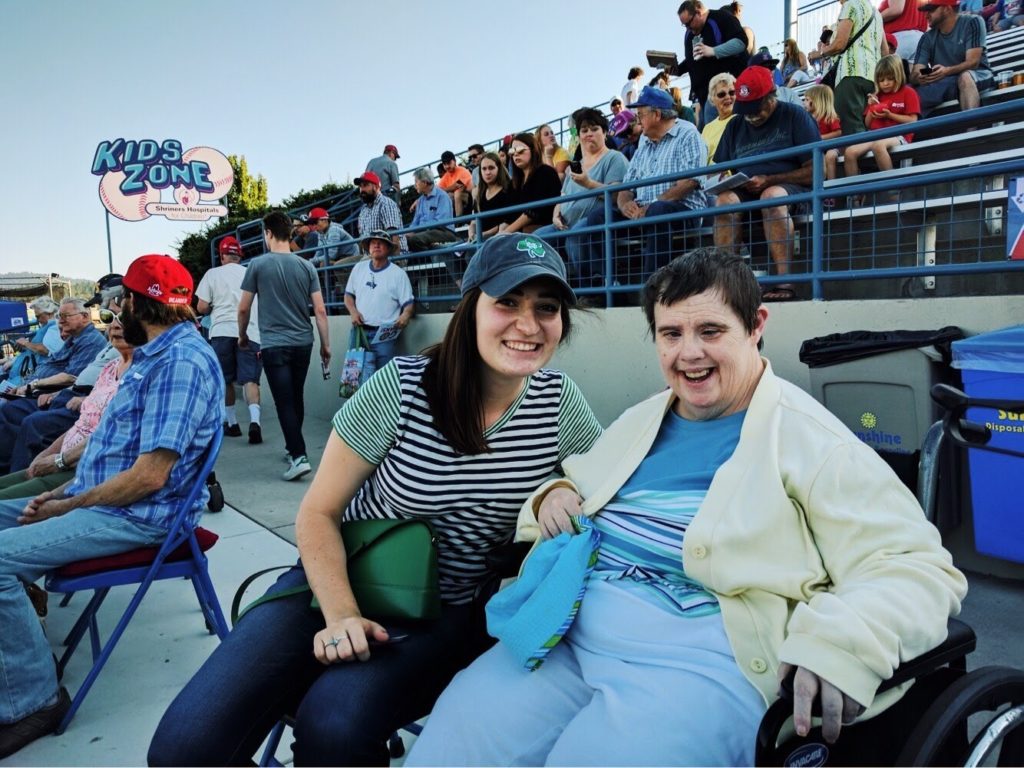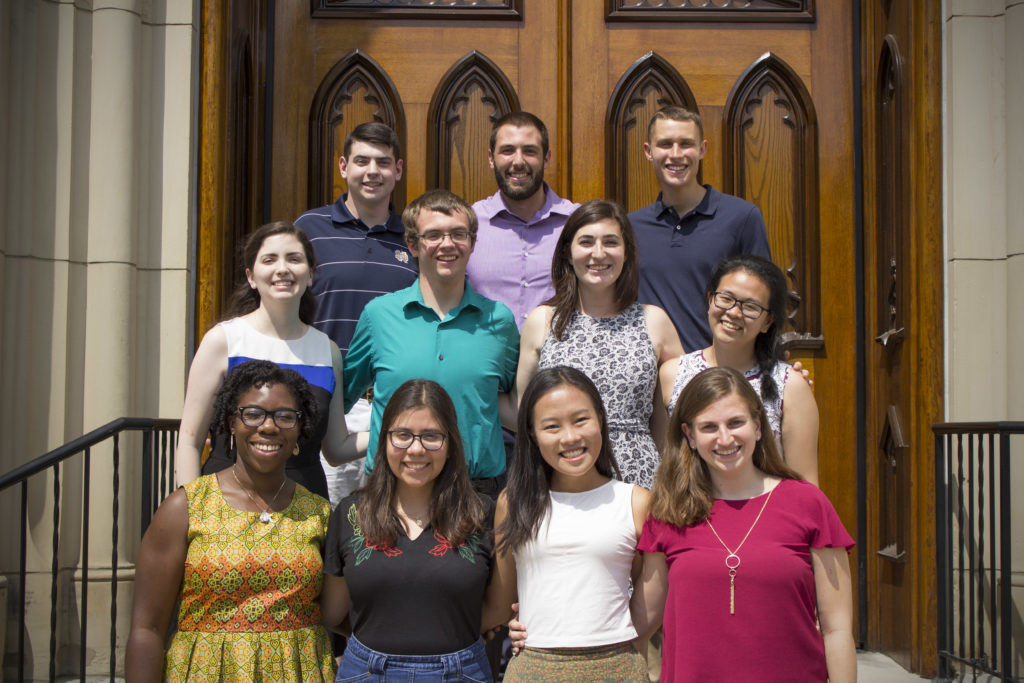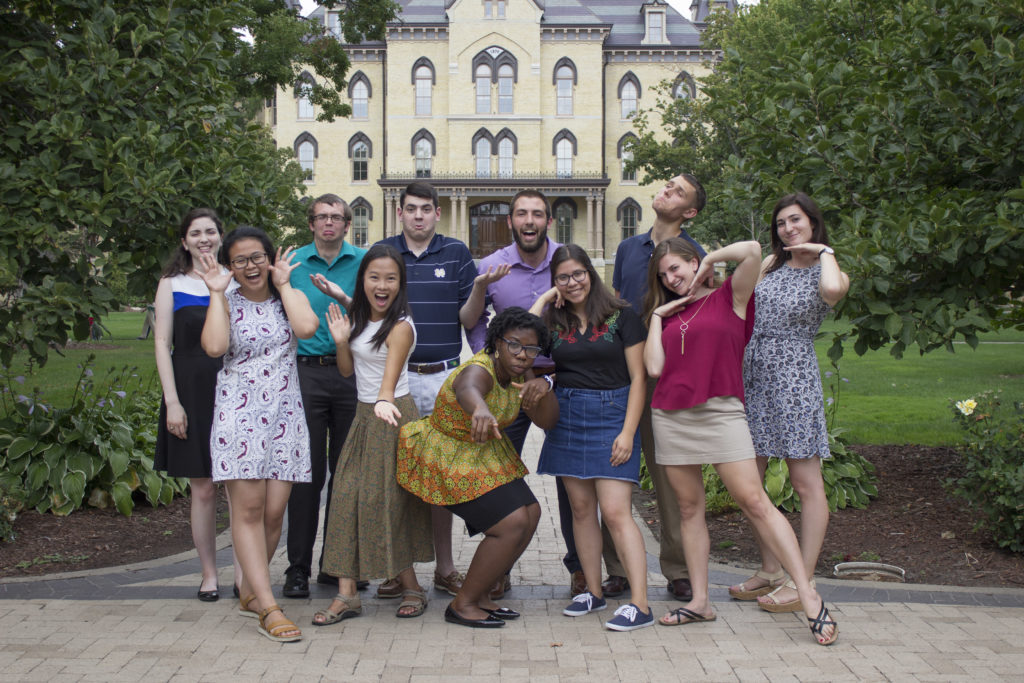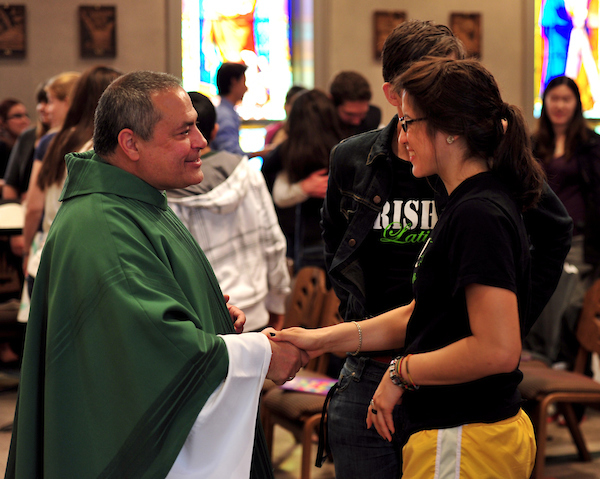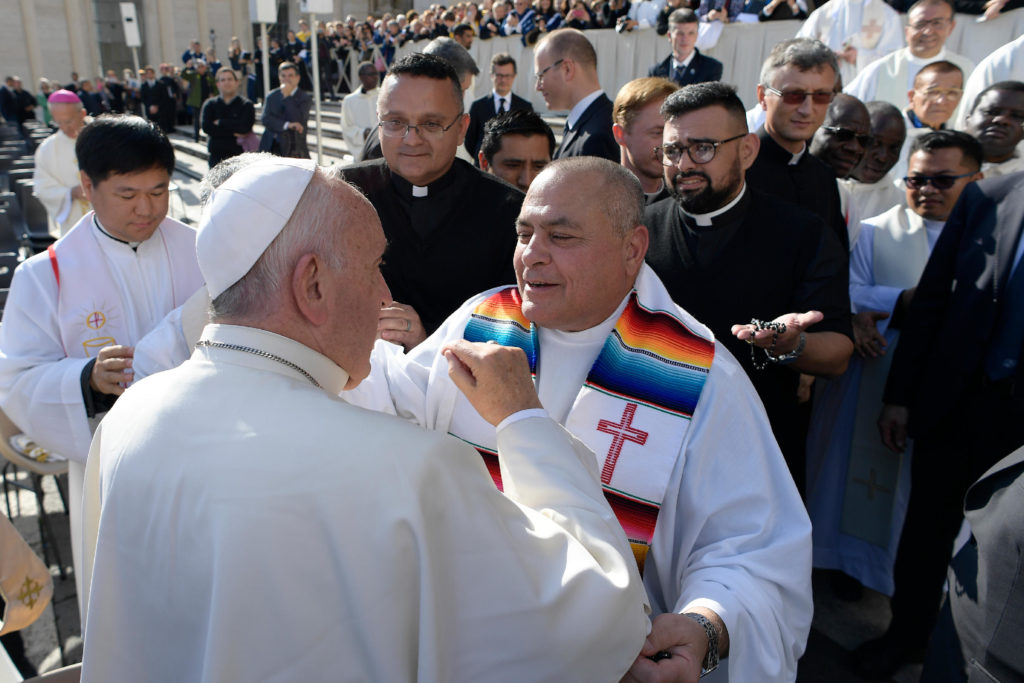Melissa Gutierrez Lopez, Senior Anchor Intern
“Highs? Lows? Where have I seen God?”
This is a little exercise that my Compass group did my freshman year, way back in 2014. Each week, we would start our meetings by sharing some highlights and lowlights about that week and by answering the question “Where have I seen God?” This was my favorite part.
Now a Senior, I remember this exercise because it left an impact on my spiritual life. When I first heard it, I saw it as a challenge to look for God in every encounter and every moment, especially since I wanted to have something to share at the beginning of each Compass meeting. I thought it was nice, because I was constantly reminded that God is with me and found comfort that His presence can be made known, even in unexpected ways. What was great about this retrospective question was that for me, it was a practice that involved appreciating God’s will and presence in every moment of my life. It became a habit to find God at times and places that people wouldn’t normally think of, as in not just at the Grotto, in a chapel, or at Mass. I found myself recognizing God in my walks to class through God Quad, in the laughter that I shared with my friends, and in the multiple instances of admiring nature. It was in these small moments that I was able to turn to God, become attentive to Him, and give Him thanks for the many blessings in my life. He felt more real and I felt my spirituality and faith growing.
Now, it has been about three years since I was in that Compass group, and every now and then, I’d have little moments that remind me of that challenge I once had. I now feel like I have lost the habit of being mindful of God. I say grace before my meals, I give thanks at Mass, and I pray. But, I feel like I am no longer as attentive as I used to be. Somewhere along the way I’ve forgotten this habit and find myself needing to focus on getting through my responsibilities, especially when I’m having difficult days.
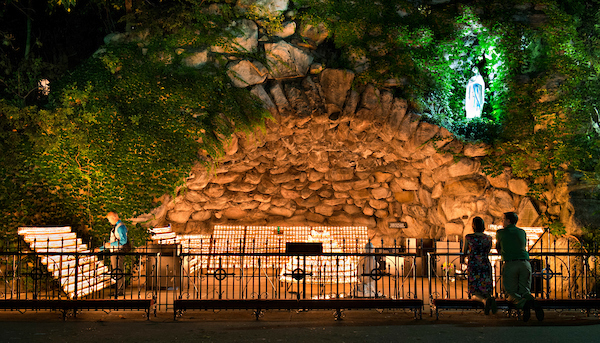
However, God surprises me by making His presence known, even when I’m not being attentive. One example is a day that I wasn’t feeling myself and I decided to go out for a walk. I didn’t expect to run into anyone or have anything in particular happen. I just ventured out to roam around and clear my head of the lonely sensation that I was beginning to feel. I decided to make my way to the Grotto and randomly met a friend whom I hadn’t talked to in a while. It was nice running into her and having the opportunity to chat for a bit, especially because of how I was feeling. After we parted ways, I thought about this accidental encounter. It felt like a purposeful encounter of God’s love, for it was an unexpected moment where I was reminded that I am not alone. I felt God near even in the midst of loneliness.
The reality is that God is always present, regardless of whether or not I am attentive to Him. Even if I am not aware, He is there, ready to receive my attention when I turn towards Him even if it is just for a single moment in my day. Realizing this, I hope that can be more mindful of God, become closer to Him, and grow in my faith.
